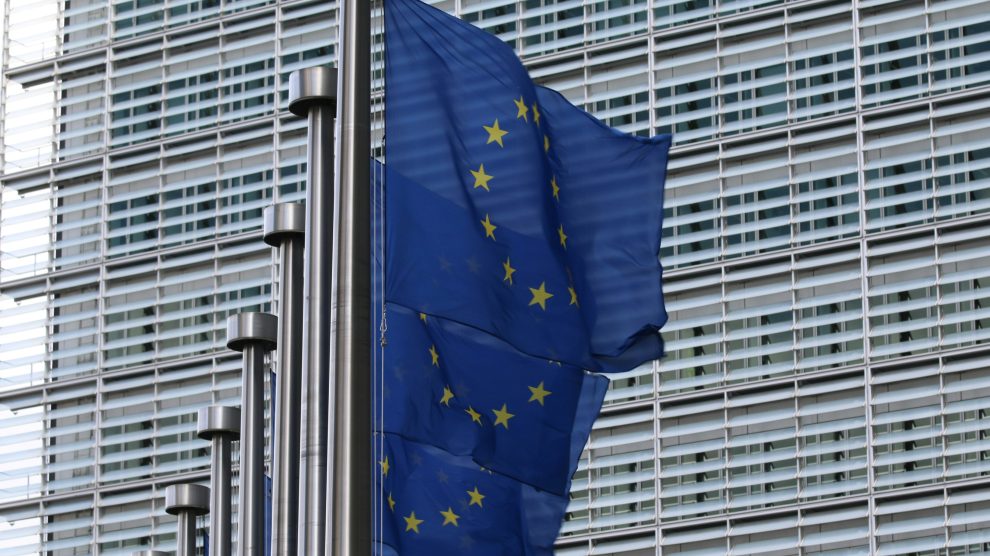‘We showcase once again that Europe stands with Ukraine for as long as it takes, and that we are ready to deliver much-needed financial support,’ says president of the European Commission Ursula von der Leyen.
As the United States continues to waver over providing more aid to Ukraine—US House speaker, Mike Johnson, said on Monday that he will aim to advance a bill for wartime aid to Israel this week following Iran’s weekend attack, but did not clarify whether Ukraine funding would be part of the package—the European Union looks set to unlock 50 billion euros in financial assistance for the country.
On Monday, the European Commission endorsed Ukraine’s comprehensive reform and investment strategy for the next four years, known as the Ukraine Plan, and recommended that the European Council approve the plan, a crucial step that will allow payments to be made to Kyiv under the Ukraine Facility.
- Support for Ukraine is vital for European democracy
- How accurate is the West’s current assessment of Moscow’s intentions?
- Saving Ukraine’s old-growth forests
The money is intended to help Ukraine keep its administration running, pay salaries and pensions, provide basic public services, and support recovery and reconstruction while it continues to defend itself against Russia’s invasion. Initially approved by EU leaders in February 2023, the facility covers the period 2024-27 but was long vetoed by Hungarian PM Viktor Orbán, who only lifted his objections in February this year.
Payments will be made subject to the implementation of agreed reform and investment steps, and under the precondition that Ukraine continues to uphold and respect effective democratic mechanisms.
Up to 32 billion euros is earmarked to support reforms and investments set out in the Ukraine Plan, with close to seven billion euros mobilised to provide access to finance. Around five billion euros is foreseen for technical assistance to support reforms and related support measures, while six billion euros are earmarked for exceptional bridge financing, of which the EU already disbursed 4.5 billion euros in March.
“Ukraine’s strategy for reforms and investments offers a solid basis to rebuild a more modern and prosperous Ukraine, on its path towards the EU,” said European Commission President Ursula von der Leyen.
“The Commission’s positive assessment of the Ukraine Plan will pave the way for regular payments under the Ukraine Facility. With [this] proposal, we showcase once again that Europe stands with Ukraine for as long as it takes, and that we are ready to deliver much-needed financial support.”
News of the plan’s approval was welcomed in Kyiv. “These funds are vital as we continue strengthening our economic foundations,” said First Deputy Prime Minister Yulia Svyrydenko.
“Building a strong economy is a collaborative effort. We’re thankful for our European partners’ unwavering support as we work together toward a prosperous and resilient Ukraine.”
Enhancing financial resilience
The Ukraine Plan identifies 69 reforms and 10 investments, broken down into 146 qualitative and quantitative indicators.
The reforms proposed cover 15 areas including energy, agriculture, transport, the green and digital transition, human capital, as well as state-owned enterprises, the business environment, public finances, and decentralisation.
They aim at enhancing Ukraine’s macro-economic and financial resilience, improving governance, increasing the capacity and efficiency of the administration, the accountability and integrity of the judiciary, supporting the development of the private sector and creating an environment conducive to sustainable economic growth.
Several reforms are expected to help Ukraine’s efforts on the accession path by advancing alignment with the EU acquis, notably in public administration, public finance management, anti-money laundering, public procurement, as well as the transport and agri-food sectors.
Investments cover the fields of human capital, energy, transport, agri-food, business environment and regional policies.
The European Commission has estimated that if all proposed reforms and investments are fully implemented, Ukraine’s GDP could increase by 6.2 per cent by 2027 and by 14.2 per cent by 2040. The implementation of the plan could also lead to a reduction of the country’s debt by about 10 percentage points of GDP by 2033.
“[This is] a crucial step towards continued EU support for Ukraine,” said Commissioner for Neighbourhood and Enlargement Olivér Várhelyi. “Our solid assessment follows close cooperation with the Ukrainian government to ensure an ambitious plan that can positive impact Ukraine’s economy and society.”
Biden makes new plea for aid
US President Joe Biden made a fresh plea to Congress to pass aid for Ukraine during a visit by the Czech prime minister Petr Fiala on Monday.
“Congress has to pass continued funding” for Ukraine “and they have to do it now,” Biden said. “There’s overwhelming support in the House and Senate if people will just let a vote take place.”
Biden hailed the Czech leader as a “great ally” for his strong support for Ukraine since Russia’s 2022 invasion, including securing nearly one million rounds of ammunition for Kyiv as US funding dries up.
“As Czechia remembers, Russia won’t stop in Ukraine and the impact on NATO would be significant. Putin’s going to keep going, putting Europe, the United States and the entire world at risk if we don’t stop him,” Biden said.
Photo by Guillaume Périgois on Unsplash.
Unlike many news and information platforms, Emerging Europe is free to read, and always will be. There is no paywall here. We are independent, not affiliated with nor representing any political party or business organisation. We want the very best for emerging Europe, nothing more, nothing less. Your support will help us continue to spread the word about this amazing region.
You can contribute here. Thank you.


